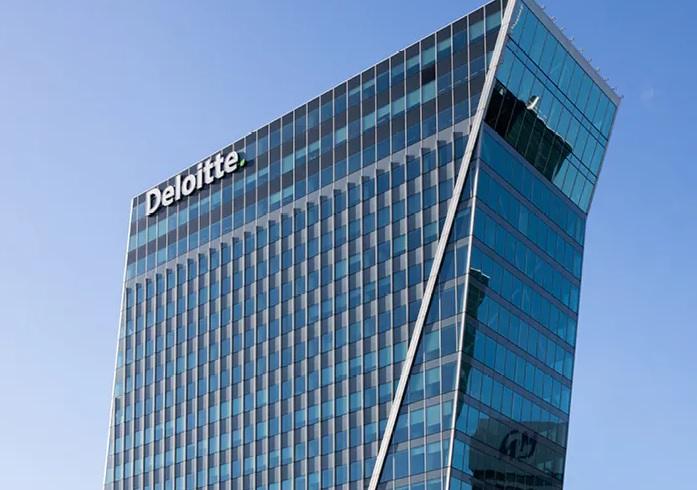More than four out of five companies continued to increase their sustainability-related investments over the past year despite reduced pressure from some stakeholder groups, as executives report already seeing strong tangible benefits from their sustainability actions, including revenue growth and cost reductions, according to a new survey released by global professional services firm Deloitte.
For the survey, Deloitte’s 2025 C-suite Sustainability Report, Deloitte and market research firm KS&R surveyed more than 2,100 C-level executives in 27 countries, across a broad range of industries and enterprise sizes, ranging from $500 million in revenues to over $10 billion.
The report found that climate change and sustainability remains a top priority for companies, cited by 45% of respondents as a most pressing challenge to focus on over the next year, coming in slightly ahead of technology adoption and innovation at 44%, and economic outlook at 38%.
The high prioritization given to sustainability appears to be reflected in executives investment decisions, with the survey finding that 83% of companies increased their sustainability investments over the past year by more than 5%, including 14% who reported increasing by more than 20%. Larger companies were the most likely to report significant increases, with 22% of companies with more than $10 billion in revenue increasing investments by more than 20% over the prior year.
Notably, companies’ increased sustainability-related investments come as they are also reporting slightly less pressure from some stakeholder groups, and some even reporting experiencing anti-ESG pushback from some areas.
Overall, while the vast majority, 81%, of executives reported feeling pressure across stakeholder groups to increase action on sustainability, pressure across specific groups appears to have declined over the past few years, with 58% reporting pressure from regulators and governments, down from 77% in 2022, for example, or 58% reporting pressure from shareholders and investors, compared with 71% in 2022. Notably, 28% of respondents said that they are feeling the effects of a pushback against climate action and ESG.
Additionally, executives appear slightly less concerned about the impacts of climate change on their businesses, with 60% reporting that they expect climate change to impact their company’s strategy and operations to a high or very high extent over the next three years, down from 70% last year (but in line with 61% in 2023).
The survey found that sustainability investments continue to grow despite the reduced shareholder pressure, as executives report significant benefits from their sustainability initiatives. Revenue generation was the most frequently reported business benefit of sustainability actions, cited by 66% of respondents, with other benefits reported including regulatory compliance and governance at 61%, brand and reputation (60%), risk and resiliency (55%) and cost reduction (55%).
Additionally, very few executives reported that broader market conditions are causing reductions in sustainability actions, with only 14%, for example, saying that a changing regulatory and policy environment is driving reductions in sustainability actions, compared with 33% saying that it actually causes a significant increase in sustainability actions. Similarly, only 13% said that the need to invest in new technologies such as AI is reducing sustainability actions, compared with 37% saying that it is significantly increasing sustainability actions.
The implementation of technology solutions was the top action reported by companies to as part of their sustainability efforts, cited by 46% of respondents, followed by closely by using more sustainable materials at 45%, decreasing operational emissions through efficiency at 45%, and tracking and analyzing environmental metrics at 44%. Notably, lower priority was given to areas outside of the organization, with only 35% reporting lobbying or making political donations in support of environmental initiatives, down from 44% last year and 38% requiring suppliers and business partners to meet specific sustainability criteria, down from 47% last year.
Focusing on technology, the survey found that the most common areas reported by executives in which their companies are implementing or planning to implement technology solutions to help achieve sustainability goals included process or operational efficiency at 55% and internal monitoring of sustainability data and performance at 54%, followed by monitoring and managing supply chain environmental performance at 53%, developing new sustainable products or services at 52%, and external reporting of sustainability data at 49%.
The survey also found that the use of AI for sustainability has already become widespread, with 81% of executives reporting that their company has used AI to further their sustainability efforts, with another 16% planning to do so in the next year. Top uses of sustainability-related AI include finding efficiencies and reducing operational emissions, cited by 65% of respondents, monitoring data and metrics for reporting (58%), and risk mitigation through applications like scenario modeling (53%). Additionally, 52% of respondents said that AI is being used to develop new sustainable products or services.
Jennifer Steinmann, Deloitte Global Sustainability Business leader said:
“Forward-thinking leaders have an opportunity to assess whether their sustainability strategy and investments are integrated with key performance drivers, material risks, and strategic priorities—helping ensure they continue delivering value and operational resilience into the future.”
Click here to access the survey.

